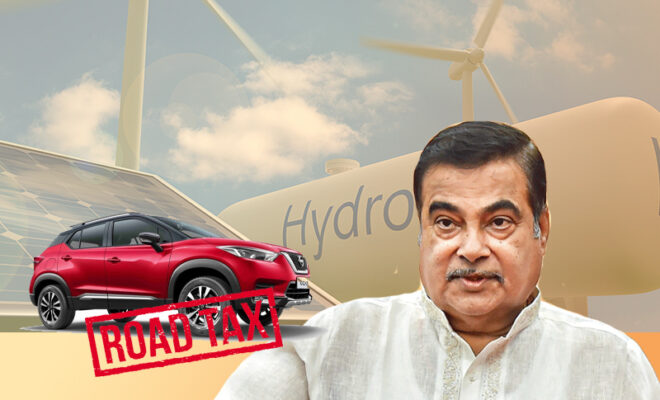Fact Check: Is Govt To Impose An Additional 10% Tax On Diesel Vehicles?

Automobiles in India are already taxed with 28% GST. But some sources claimed that Nitin Gadkari is proposing to add 10% extra GST on the automobile industry.
Some news sources reported that Nitin Gadkari, the Union Minister for Road Transport and Highways, is suggesting an additional 10% extra tax on diesel engine vehicles for specific reasons. While there is already a 28% GST for the automobile industry.
Please note that it was a rumor! Nitin Gadkari has officially announced that there is no such proposal of 10% additional taxes. He had also clarified this on his official social media handle.
However this is true that the Indian government is encouraging alternative fuel resources to reduce diesel vehicles, but there is no such official announcements of imposing additional taxes yet.
India is concerned about the environmental impact of diesel like any other country. As diesel vehicles emit pollutants that harm air quality and contribute to climate change.
In addition to that, India heavily depends on imported diesel, making the country vulnerable to price fluctuations and supply disruptions.
Thus India is looking for alternative solutions to diesel vehicles. The government aims to reduce both pollution and the country’s reliance on this fuel.
Let’s understand why diesel vehicles are not good for the modern era and what are the potential solutions and alternatives!
How Are Diesel Vehicles A Threat To The Earth, Including Human Civilization?
Diesel vehicles pose several threats to our environment and human health. They emit harmful pollutants like nitrogen oxides (NOx) and particulate matter (PM), which can cause respiratory diseases and worsen air quality.
Additionally, diesel combustion releases carbon dioxide (CO2), a greenhouse gas responsible for global warming and climate change. Addressing these issues is crucial to safeguard both the environment and our well-being.
Also Read:- Why Do Govt, RBI Encourage You To Invest In Sovereign Gold Bond Scheme?
What Are The Alternate Options For Diesel Fuels?
There are several alternatives to traditional diesel fuels, and India is actively exploring them to reduce its environmental impact. Three prominent alternatives are following:
1. Green Hydrogen
Green hydrogen is produced using renewable energy sources, like wind and solar power, to split water molecules into hydrogen and oxygen. It’s a clean and sustainable fuel option that can replace diesel in various applications, including transportation.
2. Electric Vehicles (EVs)
EVs run on electricity stored in batteries and produce zero smoke emissions. They are an effective way to transition away from diesel and gasoline vehicles, contributing to cleaner air and reduced carbon emissions.
3. Ethanol BioFuel
The Nitin Gadkari led administration has found an excellent solution, which is a much better, cheaper and more efficient alternative to diesel, that is Ethanol BioFuel.
Will Automobile Companies Support India’s Ethanol Initiative?
Many automobile companies are already aligning with India’s initiative to promote cleaner fuels and technologies. Some major players have shifted their focus from diesel to:
1. Ethanol-Blended Petrol Engines
They are working on vehicles that can efficiently run on ethanol-blended petrol, supporting India’s efforts to reduce traditional fuel consumption. They are shifting from diesel-engines to petrol-engines.
2. Electric Vehicles (EVs)
Automobile companies are increasingly investing in EVs, reflecting the global trend toward electric mobility. This aligns with India’s efforts to reduce pollution and greenhouse gas emissions.
Why Is India Focusing On Ethanol-Blended Petrol Biofuel?
Ethanol is considered the best alternative fuel for several reasons. It’s renewable, as it can be produced from crops like sugarcane, corn, and wheat.
India is implementing the use of ethanol through ethanol-blended petrol. This means blending a certain percentage of ethanol into regular petrol.
It helps reduce our dependence on imported oil, improves air quality, and creates jobs in the agricultural sector.
The Indian government has set a target of blending 20% ethanol in petrol by 2025 to further promote this cleaner fuel. The percentage of ethanol can be increased after some more innovations.



